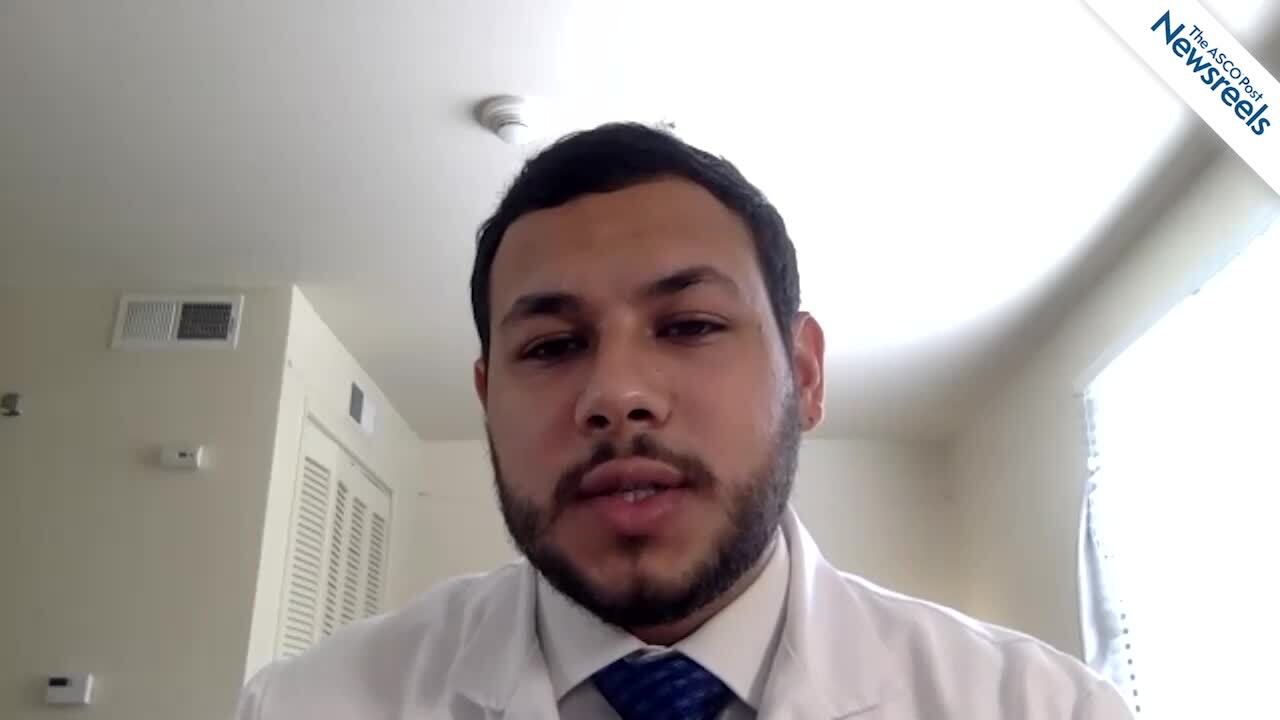Amir A. Jazaeri, MD, on Metastatic Cervical Cancer: The Role of Immunotherapy
SGO 2021 Virtual Annual Meeting on Womens Cancer
Amir A. Jazaeri, MD, of The University of Texas MD Anderson Cancer Center, discusses data on the safety and efficacy of adoptive cell transfer using autologous tumor-infiltrating lymphocytes (LN-145) to treat patients with recurrent, metastatic, or persistent cervical carcinoma whose tumors have progressed on prior systemic therapy (ID # 10224).
The ASCO Post Staff
Alice P. Barr, MD, of the Carolinas Medical Center and Levine Cancer Institute, discusses results from a retrospective study, which showed that progression-free and overall survival appeared to be no different with open surgery and minimally invasive surgery for interval debulking after neoadjuvant chemotherapy in women with advanced epithelial ovarian cancer. Perioperative outcomes also seemed to be superior with minimally invasive surgery (ID #10209).
The ASCO Post Staff
Dana M. Roque, MD, of the University of Maryland Medical Center, discusses phase II results showing that weekly ixabepilone plus biweekly bevacizumab may improve overall response rate as well as progression-free and overall survival for women with platinum-resistant or -refractory ovarian, fallopian tube, and primary peritoneal cancers, a population in need of treatment choices.
The ASCO Post Staff
Rebecca S. Kristeleit, MD, PhD, of the University College London and UCL Cancer Institute, discusses efficacy and safety results from the phase III ARIEL4 study, which showed that rucaparib improved progression-free survival vs standard-of-care chemotherapy in patients with BRCA-mutated, platinum-resistant, or platinum-sensitive relapsed ovarian cancer (ID #10191).
The ASCO Post Staff
Morcos N. Nakhla, MS, a second-year student at the David Geffen School of Medicine at UCLA, discusses data showing that a higher surgical volume is associated with better outcomes for frail patients undergoing surgery for ovarian cancer. Over the 12-year study period, mortality decreased for all women with ovarian cancer, despite a concurrent increase in frail patients (ID #10209).
The ASCO Post Staff
Edward L. Trimble, MD, MPH, of the National Cancer Institute, discusses the World Health Organization’s global strategy to speed the elimination of cervical cancer through vaccination, screening, treatment, and training for multidisciplinary teams in gynecologic oncology care. This marks the first time that 194 countries have committed to such an effort (ID # 10203).





